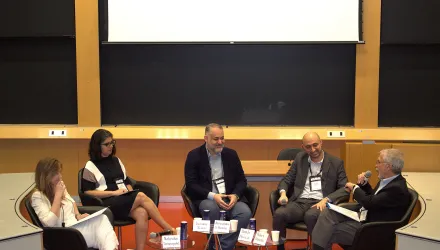Abstract
Deep-seated, persistent uncertainty is a pernicious feature of climate change. One key parameter, equilibrium climate sensitivity, has eluded almost all attempts at pinning it down more precisely than a 'likely' range that has stalled at 1.5–4.5°C for over thirty-five years.
The marginal damages due to temperature increase rise rapidly. Thus, uncertainty in climate sensitivity significantly raises the expected costs of climate change above what they would be if the temperature increases were known to be close to a mean value 3.0°C. The costs of this uncertainty are compounded given that the distribution of possible temperature changes is strongly skewed toward higher values.
Gernot Wagner, Harvard University
Richard J. Zeckhauser, Harvard University
Wagner, Gernot and Richard Zeckhauser. “Confronting Deep and Persistent Climate Uncertainty.” Harvard Project on Climate Agreements, Belfer Center, July 2016





